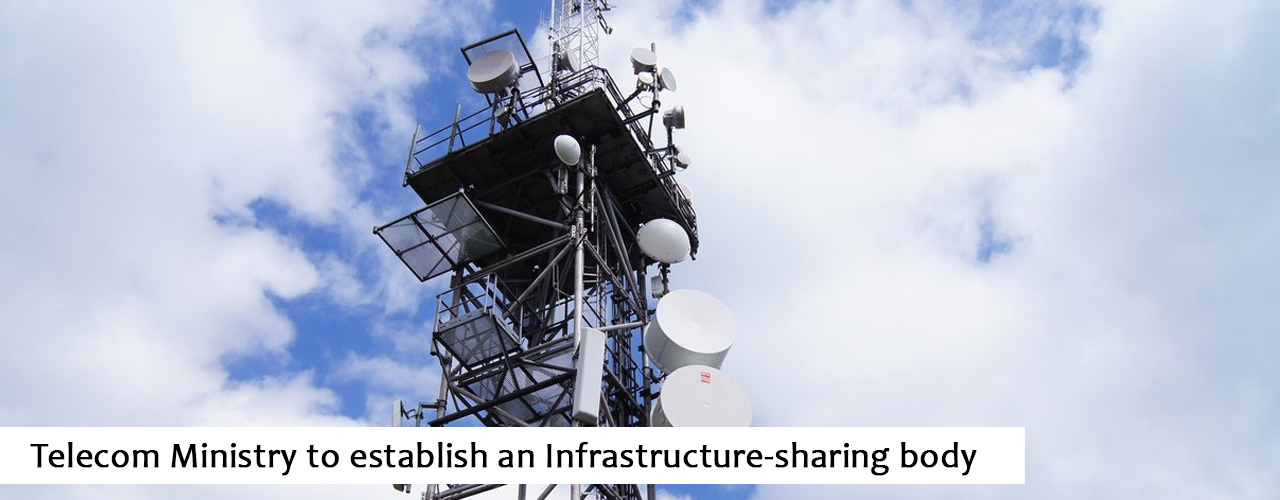Telecom Ministry to establish an Infrastructure-sharing body
With the aim of fast-tracking digitisation with the aim of fulfilling economic growth according to its V2025 economic manifesto, the Government of Sri Lanka (GoSL) intends to establish an infrastructure-sharing body under the Ministry of Telecommunication and Digital Infrastructure.
Speaking at the 2ndSri Lanka Broadband Forumco-sponsored by Huawei, Minister of Telecommunication and Digital Infrastructure, Harin Fernando said that steps were already underway regarding this endeavour.
“After a lot practices of fibre deploying, we find that civil work is the key, which takes a long time and costs much. How to bring down civil work cost and time will greatly speed up the pace of development. Hence, we are now in the process of setting up an infrastructure-sharing company under our ministry, which will speed up the economic growth envisaged,” he said.
Fernando stated that the 2ndForum intended to explore cost and time saving measuresfor the country’s broadband use, adding that if utility suppliers shared physical infrastructure the “civil work” of telecommunication operators may decline and infrastructure replication with regard to ducts and poles may be side-stepped.
“I am happy to hear that some organisation has taken some steps forward. The Ceylon Electricity Board (CEB), which is an electricity company, lay some dark fibre when they build power lines and work on sharing poles to operators. I encourage all for this kind of industry cooperation and call on more organisations like building, electricity, road, railway to share your infrastructures for broadband deployment,” he added.
He also brought into focus the ministry’s “Road Map 2015-2020” that had been drafted with the intent of developing Sri Lanka’s digital infrastructure with the purpose of allowing the function of digital ecosystems like ICT use for enhancing governance, ICT policy improvements, legislations and standards, promoting ICT use in key sectors, enrichingpublic involvement in ICT and ICT enabling all activities of commerce.
“We are pursuing these priorities on the background of the fourth Industrial Revolution, which is fundamentally changing the way we live, conduct business and how we interact with people. It offers potential great benefits for those who participate in it but widens the divide to the excluded. We are embracing this revolution as a platform to propel us to be globally competitive,” Fernando stated.
He also touched on the triumph of the 1stSri Lanka Broadband Forum held in 2016, adding that it helped to restructure Sri Lanka’s broadband speed and quality.
“Now, one year later, I am happy to see hundreds of thousands of new fixed broadband users. But that’s not enough for Sri Lanka’s digital vision. Most Sri Lanka people are still unconnected. Hence, the establishment of the infrastructure-sharing firm will help speed up the procedure and reduce the cost at the same time,” he said.
In 2012 Sri Lanka’s mobile connectivity stood at 96% but grew to an impressive 126% in 2016, with mobile broadband connectivity having increased from 8% in 2012 to 21% in 2016.
Fernando also spoke about the Ministry of Finance’s decree to eliminate the 10% telecommunication data levy with effect from September 01, adding that a surge in usage will result from this with all sectors being propelled towards a digitised economy.
“A lot of people were criticising the policy directive to impose a levy on data, while envisaging a digital economy. Thanks to the new Finance Minister we were able to remove it, which will now be reflective on enhancing a digital ecosystem,” he emphasised.
Fernando also noted the development of ICT technologies and the increasing spread of broadband infrastructure had become core economic competencies, critical for national competitiveness across the world, which is supported by ITU research that an additional 20% investment in ICT adds 1% to a country’s GDP and increasing broadband penetration by 10% drives a 1.38% increase in GDP, also having a positive effect on employment, productivity, innovation and so forth. ¹
The agenda at the forum also highlighted insightful presentations and goals towards digital connection in Sri Lanka including a presentation on the topic Digital Society, eGovernment and broadband while topics such as Sri Lanka’s digital life vision for 2020, the effect of broadband on the people’s lives, the chances for broadband as a public utility and policy changes to support broadband development were subjects that were discussed. ²
OSL TAKE:
The emphasis on developing Sri Lanka’s digital infrastructure and improve its ICT sector will not only enable the country to become a digitised economy, but also provide ample opportunities for enterprising individuals to invest, innovate and/or introduce new techniques to this sector.
¹ http://www.ft.lk/top-story/Infrastructure-sharing-entity-to-speed-up-broadband/26-639501
² http://www.ft.lk/top-story/Infrastructure-sharing-entity-to-speed-up-broadband/26-639501
| Article Code : | VBS/AT/15092017/Z_2 |

